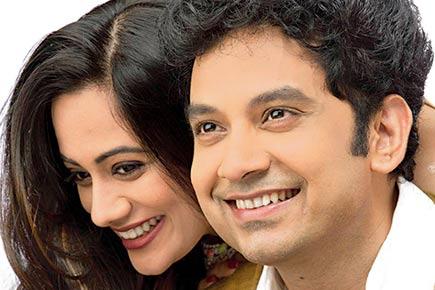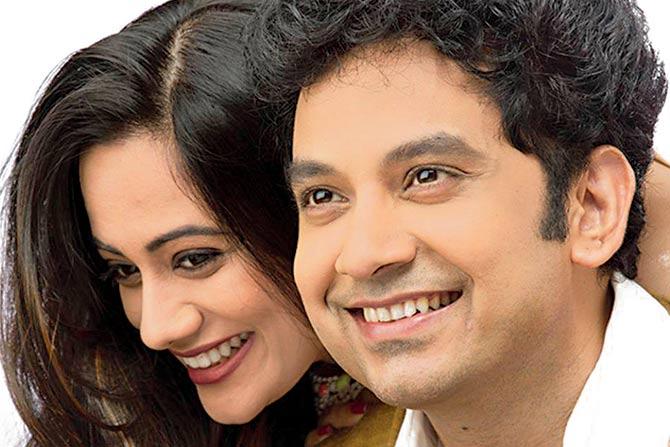Unlike Bollywood, Indian theatre is beginning to reflect the reality around us, in which love or marriage don’t always mean 'happily ever after'

Donu00c3u00a2u00c2u0080u00c2u0099t Worry Be Happy
 A major bugbear of urban living — stress — has found itself into a play. A new Marathi production, Don’t Worry Be Happy, written by Mihir Rajda and directed by Adwait Dadarkar, is packing them in, because it reflects the lives of young working couples in Mumbai. And who hasn’t experienced the ravages of stress?
A major bugbear of urban living — stress — has found itself into a play. A new Marathi production, Don’t Worry Be Happy, written by Mihir Rajda and directed by Adwait Dadarkar, is packing them in, because it reflects the lives of young working couples in Mumbai. And who hasn’t experienced the ravages of stress?
Usually, plays (or films) portray marriages cracking up under the strain of infidelity, violence, financial worries, in-laws; in this play, the loving couple Akshay (Umesh Kamat) and Pranati (Spruha Joshi) are afflicted by stress. Both have demanding jobs — he in a marketing company, she as a creative director of a daily TV soap. They have been so busy that three years into the marriage, they haven’t been able to go on a honeymoon. One of the reasons is lack of time, and another is that Pranati can’t bear to leave behind her pet dog, Snuff.
ADVERTISEMENT

Scenes from a marriage: In Don’t Worry Be Happy, the loving couple Akshay (Umesh Kamat) and Pranati (Spruha Joshi) are afflicted by stress. They have been so busy that 3 years into the marriage, they haven’t been able to go on a honeymoon.
As the play opens, Akshay is packing for that long delayed trip — both have managed leave from their places of work with some difficulty and Snuff has been given away to a dog lover, so they are assured of its well being. The dog has been the cause of some strife — Pranati insists on vegetarian health food for themselves, while the pampered dog gets to eat chicken. All this is confided to an omnipresent friend, Chintan (played by the writer).
Still, there doesn’t seem to be any indication of trouble when Pranati announces after a visit to the gynaecologist that she has been diagnosed with polycystic ovarian disease (PCOD), which requires treatment and a pregnancy as soon as possible, if she is to ever have a child.
The pressure of conceiving to a ‘deadline’ takes its toll on them and Pranati blurts out that her ailment is caused by stress and that he is the cause of it.
It is generally accepted that marriage required a degree of adjustment or compromise — when a couple lives away from the buffeting of an extended family, even seemingly tiny problems can implode. Pranati has insisted on living apart from her in-laws, but when problems arise, there is nobody to advise calm, except Chintan, who, because of his unmarried status is not the best person for the job of counseller. (Also, it is rather rare, in Mumbai, to have the kind of friend who has the time to listen to rants, try to solve problems and hand over his ATM card!)
Pranati’s rage has been simmering, and it boils over with searing bitterness: Akshay’s reconnecting with an old flame, his online flirtation, his untidiness, and the worst — he does not share her love for Snuff. He has explanations for it all — and this part is quite funny — but Pranati is not to be placated easily and demands a separation. Akshay’s life starts falling apart in other ways and he has to deal with terrible stress too, which he accuses her of causing by constantly waving the feminist flag. This is reminiscent of the Aziz Mirza film, Chalte Chalte, where a wet towel flung on to a bed is the final straw in a marriage that has little resentments building up to a volcano.
The act of falling out of love is painful and only the couple going though it can decide the level of heartbreak. Incidentally, another recent Marathi play, Samudra, again starring Spruha Joshi (with Chinmay Mandlekar, writer-director too) was also about a troubled marriage, the problems escalated by the wife’s confession of a past affair. Yet another two-hander Gujarati play, Blackout (written by Sneha Desai, directed by Dhiraj Palshetkar) was also about the strain in a marriage caused mainly by the inability to communicate. It went on to be a big hit, which perhaps shows that today’s audiences do not necessarily believe in ‘happily ever after’ endings.
Don’t Worry Be Happy is not able to carry this clear-eyed contemporary scenario to the very end, and brings everything built up till then down with a Bollywood-ian thud. Maybe commercial considerations came in the way; maybe they didn’t want to shatter romantic illusions completely. Still, theatre is reflecting a reality that is all around us. Marriage is no longer the emotional cocoon that everybody believes or expects it to be, and the break-up of a relationship maybe distressing, but not necessarily cataclysmic. For the stronger partner, it might even provide a sense of liberation, with more options available to spend that freedom from marital bonds. Hindi films are still caught up in the walking into the sunset kind of conclusion to romance, and rarely entertain the idea of love not culminating in marriage, or that marriage not being successful, even though urban Indian society has moved away from Valentine’s Day clichés.
Deepa Gahlot is an award-winning film and theatre critic and an arts administrator. She tweets at @deepagahlot
 Subscribe today by clicking the link and stay updated with the latest news!" Click here!
Subscribe today by clicking the link and stay updated with the latest news!" Click here!







